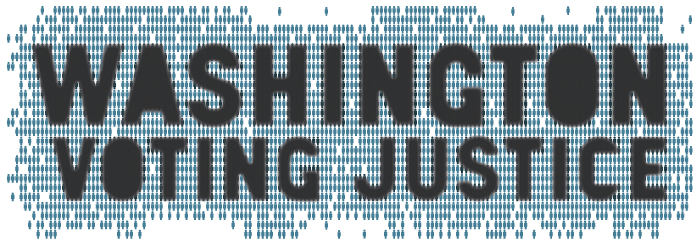Voting Rights Restoration Bill Signed into Law! FAQ and Video
Updated 2022 – the Voting Rights Restoration Bill is now law! What does that mean for Washingtonians with past convictions? Read our FAQs below.
- Can I vote if I have a misdemeanor conviction?
- Yes! Misdemeanors do not affect your voting rights in our state. You can even vote from jail!
- Can I vote if I have a juvenile conviction?
- Yes! If you were not tried in an adult court, your conviction doesn’t affect your voting rights.
- Can I vote if I owe court debt (Legal Financial Obligations)?
- Yes! Washington can no longer revoke your voting rights because of court debt.
- Can I vote if I have a past felony conviction?
- Yes! You are now allowed to vote immediately upon release from prison, even while on supervision. You must re-register to vote, even if you were registered before incarceration.
- Can I vote if I do not have an address?
- Yes! Use an identifiable location as your place of residence (such as cross streets or a landmark), and set your mailing address as “general delivery” at a post office address.
- How do I register to vote?
- Visit sos.wa.gov/elections/register to find links to register online, print mail-in forms, and locate your nearest vote center. You can email us at info@freethevotewa.org for questions and help registering.
- What was the old law? Who got their rights restored thanks to the voting rights restoration bill?
- Before the new law went into effect on Jan. 1, 2022, people with past felony convictions who were under community supervision were not allowed to vote. More than 20,000 Washingtonians were living and working in our communities without the right to vote because of this, and some thought they would never vote again because they had a lifetime supervision sentence. There was also a chance that people could have their rights revoked by a court if they couldn’t pay their court debt (legal financial obligations).
- What did House Bill 1078 change?
- HB 1078 automatically restores voting rights to citizens with past felony convictions immediately upon their release from prison. HB 1078 will not restore voting rights to people who are incarcerated, or people who are ineligible to vote for a different reason (age, citizenship status, etc).
- How many people will be impacted?
- According to a report from the WA Dept. of Corrections, there are over 20,000 people living in our communities right now whose rights were restored by this bill (their numbers estimate about 26,000). Black and Indigenous people are disproportionately represented in this population.
- What is community custody/supervision? Is community supervision the same as parole?
- Washington state does not have parole, but people may have a period of community supervision included in their sentence. Some people are in community supervision after completing their prison terms, while others may have never gone to prison at all. The Department of Corrections states that one of the main goals of this time is to provide opportunities and support to people as they reintegrate into their neighborhoods. People under community supervision are living at home, paying taxes, working jobs, and trying to successfully re-enter their communities.
- Who advocated for this win?
- A broad coalition of people joined together to win this victory for voting rights, including directly-impacted activists, criminal justice experts, survivor groups, law enforcement, and the Department of Corrections. This policy also had widespread support in the public – 87% of Washington voters supported rights restoration according to this recent poll – and this support is strong regardless of political party, region, or demography. Check out freethevotewa.org for more information about the WA Voting Rights Restoration coalition, who led the way on this victory!

Comments are closed